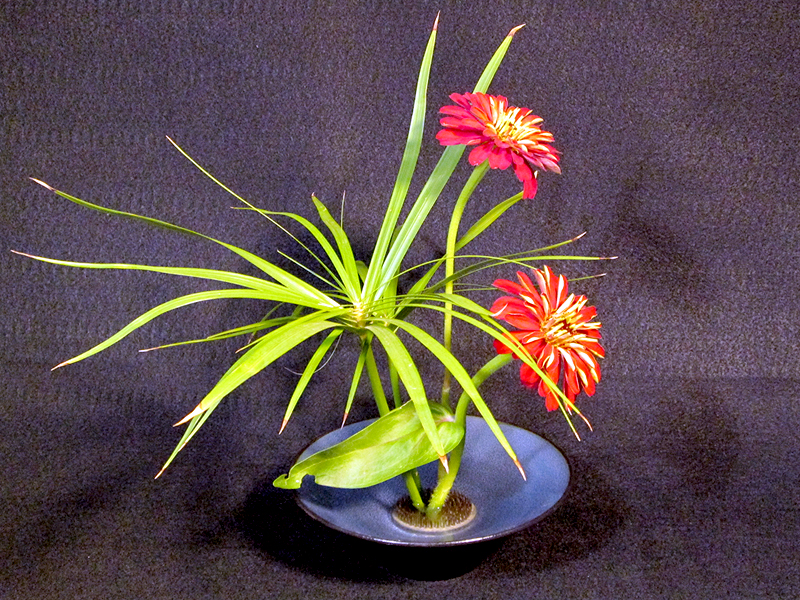Creating With Flowers, Stems and Leaves
Freshly-snipped Garden flowers in a vase can liven up a home, with their inherent beauty and capacity to grace indoor living spaces. Although this is often done hurriedly without too much thought, the plants growing in backyards can also provide an opportunity to take a slower, more contemplative, even meditative approach. Ikebana—the Japanese tradition of flower arrangement—is a practice that takes that pathway.
Ikebana has a centuries-long history and has a set of formally-prescribed methods, standards and norms. Formal mastery of the art requires long practice. Consequently, ikebana may seem unapproachable, but it need not be. Ikebana can transport people to a mental state of heightened awareness and appreciation of the beauty in the world around them.
Ikebana-style compositions are usually characterized by an asymmetric, yet balanced and sparse arrangement. The “empty” space in the composition is as visually important as that occupied by blossoms, stems and leaves. The balanced asymmetry provides a visual escape from the rather rigid linearity of buildings and rooms.
There is no need to purchase special containers or equipment to begin. Ordinary bowls, cups and other ceramic or glass containers can hold your creations. There is one small purchased item called a kenzan that is useful in creating arrangements in shallow bowls. It consists of a weighted block, usually of cast metal with closely spaced upright pins, into which the cut ends of upright stems are inserted. A kenzan can be found at many local floral or craft stores or ordered online. A substitute for a kenzan can be made by coiling up a length of wire into a tight tangle of loops and openings. Placed in the bottom of a bowl, upright stems can be inserted tightly into the openings and gaps. Further inspiration and ideas can come from excellent books on the subject, or easier yet, a simple image search for ikebana on the internet.
Everyone can explore making ikebana-inspired compositions from the plants found at their doorsteps. For example, even in the stifling heat of summer in Arizona, a Bouganvillea stem adorned with brilliant magenta flowers can be paired with stems and leaves of contrasting color and form to create a visual treat. The most important benefit is not the end product—rather it is the peaceful contemplation that accompanies the process of creation. The path taken is actually more important than the destination.
